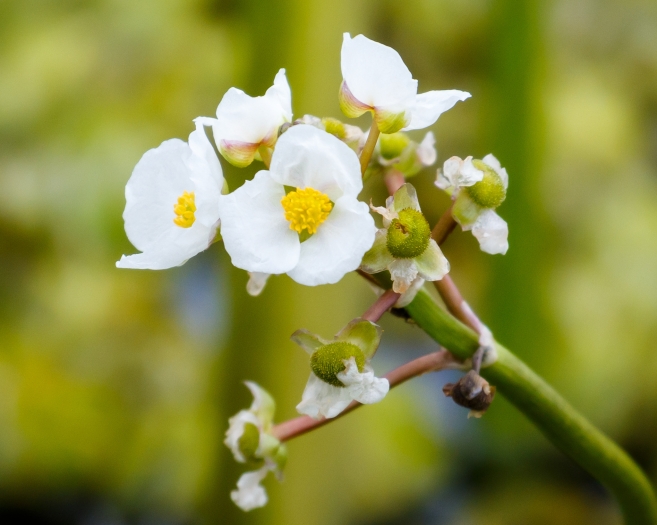Delta Arrowhead
(Sagittaria platyphylla)
Delta Arrowhead (Sagittaria platyphylla)
/
/

© Meghan Cassidy
CC BY-SA 4.0
Image By:
© Meghan Cassidy
Recorded By:
Copyright:
CC BY-SA 4.0
Copyright Notice:
Photo by: © Meghan Cassidy | License Type: CC BY-SA 4.0 | License URL: http://creativecommons.org/licenses/by-sa/4.0/ | Uploader: wildcarrot | Publisher: iNaturalist |









Estimated Native Range
Summary
Sagittaria platyphylla, commonly known as Delta Arrowhead or Delta Duck-potato, is a perennial herb that is native to wetland habitats such as marshes, swamps, and the edges of ponds and lakes in the central and eastern United States. Its core range extends from central Texas to the Florida Panhandle and north to southern Illinois. It typically grows up to 59 inches tall and is notable for its production of underground corms, which are a food source for wildlife. The plant reproduces both vegetatively by stolons and sexually by seeds. Delta Arrowhead has two types of leaves: submerged ones with flattened petioles and emergent ones with ovate to elliptical blades that can reach up to 7 inches in length. The inflorescence is a raceme with 3–9 whorls of showy white flowers, each up to 1 inch in diameter, blooming in the summer months.
Delta Arrowhead is valued for its ornamental white flowers and its ability to naturalize in wetland gardens, providing habitat and food for wildlife. It is often used in water gardens, pond margins, and as a part of naturalized wetland plantings. This plant prefers full sun to part shade, requires consistently moist to wet soil, and can even grow in shallow water. While it is relatively low-maintenance, it can spread aggressively if conditions are ideal. In cultivation, it should be monitored to prevent unwanted spread. Outside of its native range, such as in Australia and the Yangtze River Basin in China, Sagittaria platyphylla is considered invasive and poses a threat to local ecosystems.CC BY-SA 4.0
Delta Arrowhead is valued for its ornamental white flowers and its ability to naturalize in wetland gardens, providing habitat and food for wildlife. It is often used in water gardens, pond margins, and as a part of naturalized wetland plantings. This plant prefers full sun to part shade, requires consistently moist to wet soil, and can even grow in shallow water. While it is relatively low-maintenance, it can spread aggressively if conditions are ideal. In cultivation, it should be monitored to prevent unwanted spread. Outside of its native range, such as in Australia and the Yangtze River Basin in China, Sagittaria platyphylla is considered invasive and poses a threat to local ecosystems.CC BY-SA 4.0
Plant Description
- Plant Type:
- Height: 1-2.5 feet
- Width: 1-3 feet
- Growth Rate: Rapid
- Flower Color: White
- Flowering Season: Summer
- Leaf Retention: Deciduous
Growth Requirements
- Sun: Full Sun, Part Shade
- Water: High
- Drainage: Fast, Medium, Slow
Common Uses
Edible*Disclaimer: Easyscape's listed plant edibility is for informational use. Always verify the safety and proper identification of any plant before consumption., Low Maintenance, Water Garden
Natural Habitat
Wetland habitats such as marshes, swamps, and the edges of ponds and lakes
Other Names
Common Names: Delta arrowhead , Duck-potato , Elliptic-Leaved Arrowhead , Sagittaria , Arrowhead
Scientific Names: Sagittaria platyphylla , Sagittaria graminea var. platyphylla , Sagittaria mohrii , Sagittaria recurva , Sagittaria recurva
GBIF Accepted Name: